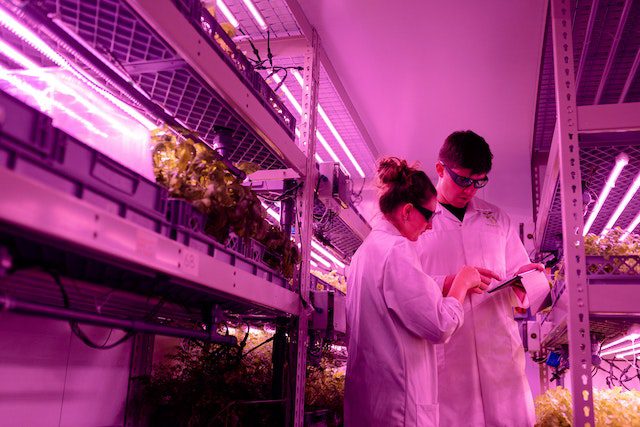Scholarship details
The University of Edinburgh School of Engineering welcomes the candidates to apply for a Doctorate in Engineering Education within the Remote Laboratories initiative, overseen by Professor Tim Drysdale, who holds the Chair of Technology Enhanced Science Education at the University of Edinburgh’s School of Engineering. This exciting opportunity for research and development is made possible through collaborative efforts with Professor Tim Stratford, who serves as the Personal Chair of Civil Engineering Design & Dean of Learning and Teaching in the College of Science and Engineering, and Dr. Jonathan Terry, the Course Organiser for Engineering Design 1 at the School of Engineering.
Prospective applicants are encouraged to explore this doctoral position and engage in cutting-edge research under the mentorship of this accomplished co-supervision team. By joining this dynamic project, candidates will be able to contribute to advancements in Engineering Education through the Remote Laboratories activity.
Remote laboratories
At the University of Edinburgh, they are at the forefront of remote laboratory advancements, enabling students to engage in practical work using real equipment, accessed in real-time through a web browser from any location. Through their open-source digital infrastructure for remote laboratories, they are not only developing cutting-edge physical and software tools but also conducting educational research to integrate leading education theories into practical applications.
The university’s initiative addresses the growing need for institutions to provide experiential learning opportunities to a wider range of students across diverse geographic locations. Additionally, they are pioneering alternative approaches for feedback and authentic assessment in higher education, aligning with the UN’s recognition of the vital role of free and open public digital infrastructures in education.
Embracing open-source developments, the university is dedicated to removing barriers and ensuring accessibility for all, as they strive to revolutionize modern digital education.
Remote Laboratories Activities
The Remote Laboratories initiative provides dedicated technical support in mechanical and electronic design and production, allowing the doctoral work to primarily focus on its research aspects.
These include the following:
- Designing educational activities
- Implementing customized user interfaces using JavaScript
- Developing new digital assessment methods utilizing Python
- Conducting mixed-method evaluations, including surveys and focus groups
Optional extension work may include:
- Working on cloud infrastructure using Go
- Developing microcontroller firmware using C/C++
Successful Students List of Task
The successful students will be responsible and involved in the following:
- Developing remote laboratory-based teaching exercises for large classes of engineering students (>450) at the University of Edinburgh.
- Evaluating the effectiveness of these remote teaching exercises.
- Implementing the remote exercises for use in engineering teaching across the country and beyond.
- Creating remote experiments that complement or expand upon existing laboratory activities, including topics such as rotational position, harmonic motion, velocity control, electromagnetic measurements, strain in truss structures, and upcoming experiments in microcontroller programming and electronic sensing.
Current traditional laboratories cover a wide range of engineering topics, including:
- Strength of materials
- Chemical processes
- Renewable energy devices
- Dynamics
- Microcontrollers
- Electronics
- Control systems
Scholarship Provider: The University of Edinburgh
About the Provider

Source: The University of Edinburgh
The University of Edinburgh was founded in 1582 and holds a distinguished position as one of the world’s oldest and most esteemed universities. Situated in Scotland’s capital city, it boasts a remarkable heritage and a renowned reputation for academic excellence. Over the centuries, the university has been instrumental in shaping intellectual and scientific progress.
offering a wide range of disciplines, they also offer a range of education programs and opportunities for both local and international students. Students benefit from an inclusive and diverse learning environment, gaining access to exceptional faculty members, cutting-edge facilities, and extensive research opportunities.
The University is well-known for its commitment to fostering critical thinking, innovation, and interdisciplinary collaboration, attracting students from all over the world and also creating a vibrant international community. Graduates from the University of Edinburgh have made substantial contributions to politics, industry, academics, and other numerous fields, which leave a lasting impact on society.
Scholarship Summary
- Applicant’s Nationality: Home/EU and international students.
- Degree Level: Ph.D. Degree
- Field: Engineering
- Number of Awards: NA
- Duration: NA
- Scholarship Benefits: Tuition fee and Stipend
- Renewable: Yes
- Offered Annually: Yes
Scholarship Eligibility
Before proceeding with the application process, the applicants must meet the eligibility criteria for the scholarship.
- Must meet the minimum entry qualification of an Honours degree at 2:1 or above (or international equivalent) in a relevant science or engineering discipline, potentially supported by an MSc degree.
- Additional information on English language requirements for EU/Overseas applicants.
- 2:1 or higher degree in a numerate subject.
- Proficient digital literacies, including software development in any programming language.
- Strong communication skills in oral and written English
- The applicants must have an experience in the programming languages such as JavaScript/Vue.js, Python, Go, and/or C/C++.
- Professional or informal teaching experience
- Qualifications or experience in digital education.
Application process
The application can be completed in an online portal provided by the university. It is important to complete all the necessary personal information needed. As part of the application process, the students must submit additional required materials to support their scholarship application.
Scholarship Awards
Generous funding opportunities in the form of tuition fees and stipends are available to both Home/EU and international students. The tuition fee coverage ensures that students can focus on their education without being encumbered by excessive financial obligations. Additionally, the stipends provided offer students a means of financial support, enabling them to meet their living expenses and fully immerse themselves in their academic journey.
Application Deadline
The deadline to complete and submit the application is until April 24, 2024. Late and incomplete applications will not be considered.









